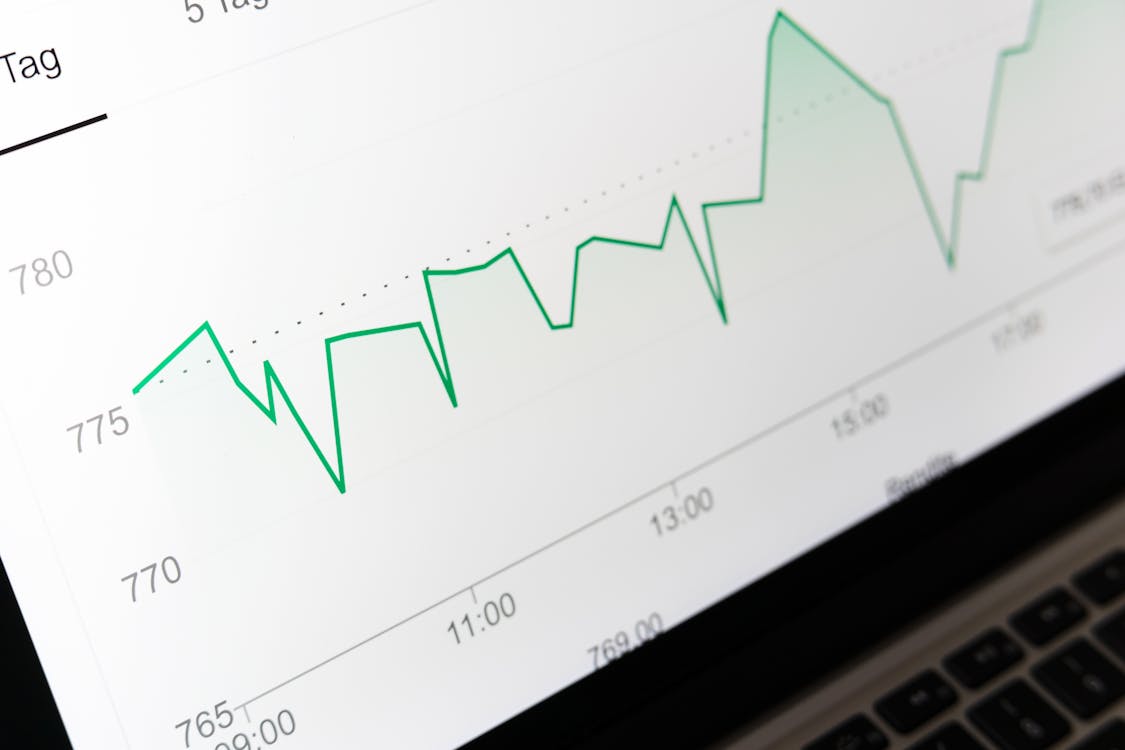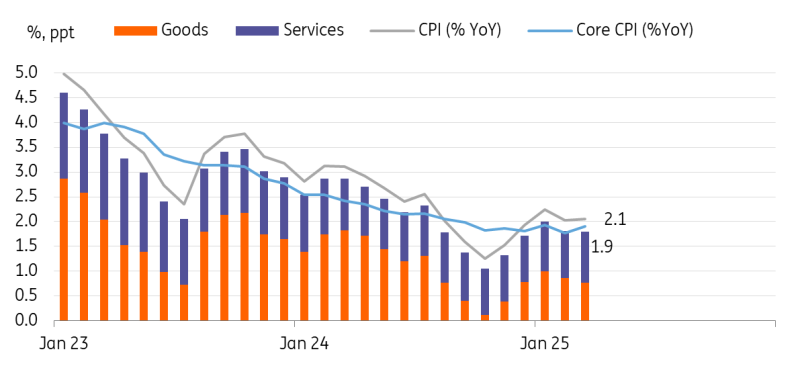Tuesday, April 1, 2025 11:10 PM EDT
Loading number of views...


Image Source: Pexels
CPI inflation unexpectedly rose to 2.1% YoY in March (vs 1.9% market consensus)
South Korea recorded an unexpected rise in inflation in March thanks to higher processed food (3.6%) and eating-out prices (3.0%). Both accelerated more than expected as companies passed on increased input price to consumers. One-off price increases for university tuition (5.2%) and kindergarten fees (4.2%) also contributed to price gains in March. Yet fresh food prices continued to fall for a second month, down 1.3% in March. Fuel prices also eased to 3.0% (vs 6.8% in February) amid falling global oil prices.
Today’s reading showed that easing supply-side trends are putting downward pressure on prices. But higher import costs are pushing prices up. This will complicate the Bank of Korea’s policy decision ahead.
Both headline and core inflation rose in March

Source: CEIC
BoK watch
The BoK may now pay more attention to core inflation remaining below 2%. At the same time, though, the weakness of the USDKRW bears watching in the coming months. The Constitutional Court ruling on President Yoon’s impeachment will be announced on 4 April. As such, the won is open to risk in both directions in the very near term, depending on the outcome of the ruling.
Just like markets, we expect the BoK to keep its policy rate at 2.75% at its April meeting. Policymakers need to analyse the impact of the previous rate cuts and assess how US tariff policies will affect the economy. Also, the BoK will be wary of the current weakness in the USDKRW. It's driven by global risk-off sentiment and domestic political uncertainty, a dynamic that has persisted in recent months. The BoK will watch to see if this pushes up prices further.
Going forward, processed food prices are expected to rise further, while and fresh food prices may rebound again due to recent adverse weather conditions. Meantime, the government efforts to curb prices will continue. This morning, the government announced that it would freeze utility fees (power and gas) in the first half of 2025 and increase spending to stablize fresh food prices.
We currently expect a rate cut in May. But depending on the inflation path and currency moves, the BoK may delay its rate action until the third quarter of 2025.
More By This Author:
Rates Spark: No Liberation For Volatility Tariffs Are Failing To Give U.S. Manufacturing A Lift Rate Rise Pressure Underestimated In Japan
Disclaimer: This publication has been prepared by the Economic and Financial Analysis Division of ING Bank N.V. (“ING”) solely for information purposes without regard to any ...
more
Disclaimer: This publication has been prepared by the Economic and Financial Analysis Division of ING Bank N.V. (“ING”) solely for information purposes without regard to any particular user's investment objectives, financial situation, or means. ING forms part of ING Group (being for this purpose ING Group NV and its subsidiary and affiliated companies). The information in the publication is not an investment recommendation and it is not investment, legal or tax advice or an offer or solicitation to purchase or sell any financial instrument. Reasonable care has been taken to ensure that this publication is not untrue or misleading when published, but ING does not represent that it is accurate or complete. ING does not accept any liability for any direct, indirect or consequential loss arising from any use of this publication. Unless otherwise stated, any views, forecasts, or estimates are solely those of the author(s), as of the date of the publication and are subject to change without notice.
The distribution of this publication may be restricted by law or regulation in different jurisdictions and persons into whose possession this publication comes should inform themselves about, and observe, such restrictions.
Copyright and database rights protection exists in this report and it may not be reproduced, distributed or published by any person for any purpose without the prior express consent of ING. All rights are reserved. ING Bank N.V. is authorised by the Dutch Central Bank and supervised by the European Central Bank (ECB), the Dutch Central Bank (DNB) and the Dutch Authority for the Financial Markets (AFM). ING Bank N.V. is incorporated in the Netherlands (Trade Register no. 33031431 Amsterdam). In the United Kingdom this information is approved and/or communicated by ING Bank N.V., London Branch. ING Bank N.V., London Branch is deemed authorised by the Prudential Regulation Authority and is subject to regulation by the Financial Conduct Authority and limited regulation by the Prudential Regulation Authority. The nature and extent of consumer protections may differ from those for firms based in the UK. Details of the Temporary Permissions Regime, which allows EEA-based firms to operate in the UK for a limited period while seeking full authorisation, are available on the Financial Conduct Authority’s website.. ING Bank N.V., London branch is registered in England (Registration number BR000341) at 8-10 Moorgate, London EC2 6DA. For US Investors: Any person wishing to discuss this report or effect transactions in any security discussed herein should contact ING Financial Markets LLC, which is a member of the NYSE, FINRA and SIPC and part of ING, and which has accepted responsibility for the distribution of this report in the United States under applicable requirements.
less
How did you like this article? Let us know so we can better customize your reading experience.





